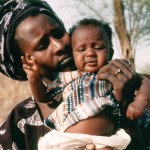In 2001 the World Bank adopted a gender equality policy as a means to help reduce poverty. This policy was outlined in Integrating Gender into the World Bank's Work: A Strategy for Action (referred as the 2001 Gender Strategy). Through this evaluation the Independent Evaluation Group finds that the World Bank made progress in gender >> Read more
News: PHILIPPINES Women’s College Corrects Gender Miseducation
MANILA, Apr 16 (IPS) - Flip open a typical textbook used in many Philippine schools and you will likely find images of women illustrating verbs such as ‘cook’ or ‘clean’, but hardly appearing anywhere much in economics and history textbooks. These are examples of the gender miseducation that textbooks in this South-east Asian country often >> Read more
News: Investing in women farmers key to halving hunger, says ActionAid
21st April 2010 "Investing in women smallholder farmers is the key to halving hunger and results in twice as much growth as investment in any other sector (1), a new ActionAid report reveals, as the European Union launches its rescue plan for the Millennium Development Goals in Brussels today. (Wednesday 21 April). Less than one >> Read more
News: ICT for Development A Global Electronic Game to Address Violence against Women
This episodic, interactive electronic game and social networking application, delivered globally via web and mobile technology, aims to engage, educate, and change attitudes of boys aged 8-15 years around the subject of violence against women. Employing the global popularity of football (soccer), the game design links the winning benefits of respect on the playing field >> Read more
Resources: The Asian Development Bank’s Support to Gender and Development Phase I Evaluation Report Relevance, Responsiveness, and Results to Date
This special evaluation study assesses implementation effectiveness of ADB’s 1998 Policy on Gender and Development (GAD) through an analysis of its relevance, responsiveness, and results to date. The evaluation is designed to be conducted in two phases. Phase I, covered in this report, is based mainly on a desk review of about 500 related documents, >> Read more
News: Maternal Deaths Decline Sharply Across the Globe
"For the first time in decades, researchers are reporting a significant drop worldwide in the number of women dying each year from pregnancy and childbirth, to about 342,900 in 2008 from 526,300 in 1980. The findings, published in the medical journal The Lancet, challenge the prevailing view of maternal mortality as an intractable problem that >> Read more
News: ODI Report on cash transfers, gender and generational relations
Evidence from a pilot project in Lesotho. Key Findings include • Cash transfers do not significantly increase anti-social expenditures (alcohol and cigarettes), but do reduce gender conflicts and tensions within households. • Although the World Vision programme is a short-term response to drought, there is some limited evidence that it will have a long-term positive >> Read more
News: The High Stakes on Land
"Research repeatedly demonstrates that when women gain control over land, they also gain control over their circumstances. Property rights can enable female farmers to produce better crops, widows to avoid eviction, girls to escape domestic violence and HIV-stigma, and women worldwide to devote more resources to the well-being of their family and ultimately their society. >> Read more
News: ECOSOC GLOBAL PREPARATORY MEETING – 22 April 2010
The Economic and Social Council (ECOSOC) will address the issues of gender equality, empowerment of women, and development cooperation at its High-level Segment, to be held from 28 June – 2 July 2010 in New York. In preparation for these discussions, the Council will organize a series of preparatory meetings. The first of these meetings, >> Read more
News: Women & Mobile A Global Opportunity
A study on the mobile phone gender gap in low and middle-income countries by GSMA Development Fund, the Cherie Blair Foundation & Vital Wave Consulting "Mobile phone ownership in low and middle-income countries has skyrocketed in the past several years. But a woman is still 21% less likely to own a mobile phone than a >> Read more

